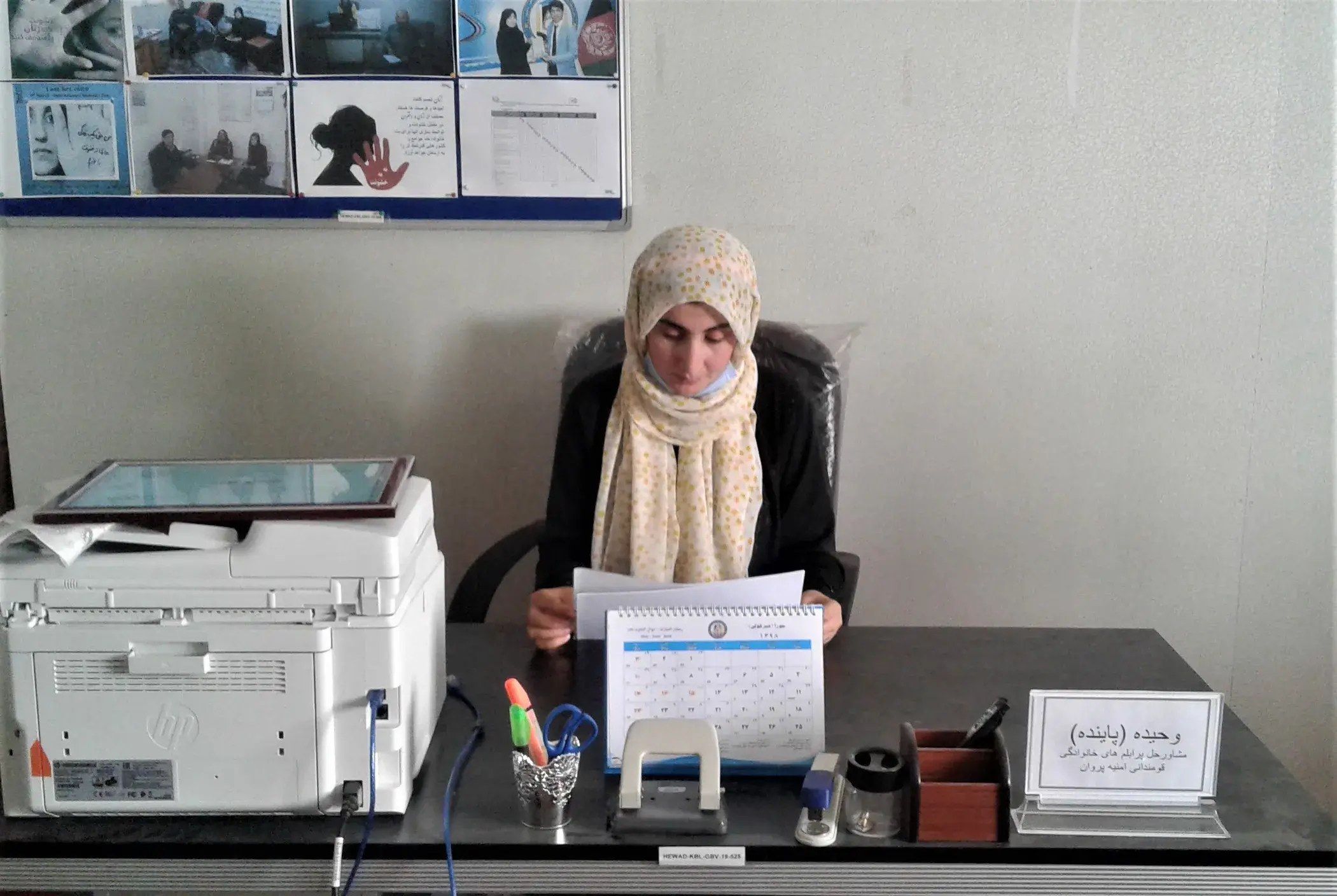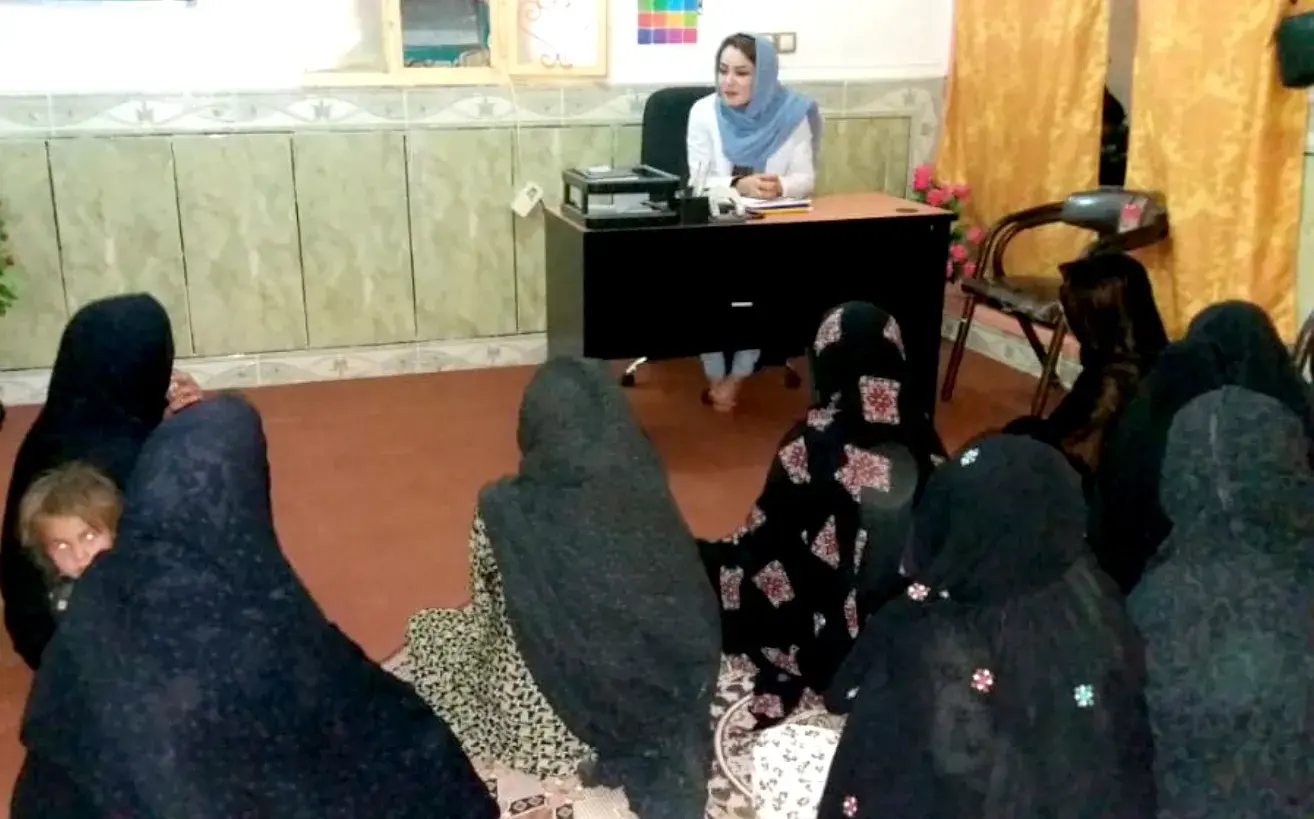Kabul, 04 September 2012 - The United Nations Population Fund (UNFPA) and the European Police Mission in Afghanistan (EUPOL) launched an awareness raising campaign on "Police Taking Action to Combat Violence against Women and Girls in Afghanistan" with an official ceremony in presence of Lt. General Mirza Mohamad Yarmand, Deputy Minister of the Afghan Ministry of Interior; Mr.Abdul Wakil Amini, Deputy Attorney General in Administration and Public Affair and Fawzia Kofi, the Head of the Committee on Women's Affairs in the Wolesi Jirga (lower house).
The awareness campaign is based on a cartoon story titled "Teacher Malalay's Adventures: Roya's Family Problems and Police Action on Violence against women". The story portrays teacher Roya's family problems and the support she receives from teacher Malalai who is determined to find a solution to support her colleague in finding help and support at the Family Response Unit in the nearest Police Office. The Ministry of Interior (MoI) with the support of UNFPA and EUPOL will implement an articulated dissemination plan aimed to reach the district and community level. The plan involves several players such as the Zone Police Head Quarter, National Prosecutors, Family Response Units, Human Rights and Gender Department of MoI, Police Staff College and Community Police Units.
"Protections for women and girls are a central component of transition and post-transition security frameworks for Afghanistan. In this regard the role of police field officers is crucial and in several cases is the first entry point for gender based violence victims. The joint efforts of UNFPA and EUPOL are aimed to strengthen the capacity of the Afghan National Police and prosecutors to recognize and prevent gender based violence, and to assist the victims in humane and ethical ways. The awareness campaign we launched today intends to support the work of trained female and male police officers instructed to support victims of violence against women through the Human Rights and Family Response Units established in many of the police station in Afghanistan" said Dr. Laurent Zessler, UNFPA Afghanistan Representative.
The awareness campaign "Police Taking Action to Combat Violence against Women and Girls in Afghanistan" is part of a long term commitment to combat violence against women in Afghanistan based on a series of capacity building activities. As part of the dissemination plan also a new edition of a tailored-made training manual "Police Taking Action on Violence against Women in Afghanistan" developed by UNFPA in partnership with the Afghan Ministry of Interior, the National Police Academy, EUPOL and other stakeholders was presented today. All content in the manual refers to national legislation, ethics and procedures to deal with cases of VAW, and in addition the quotations from the Holy Quran and the ‘Ahadith' (teachings of the Holy Prophet Muhammad PBUH), which make it relevant, acceptable and usable in the local context.
"Protection of women and girls should be one of society's principal core values. Fundamental to achieving such an aim is the establishment of an appropriate legal framework, a social culture of support to the victims of violence against women, a professional Police response and a proficient handling of such cases by Prosecutors. These are the key enablers that will assist society to prevent violence against women, encourage victims to report such cases, and permit the Afghan judicial system to take appropriate, professional and supportive action against the perpetrators. UNFPA and EUPOL strongly support the development of Afghan National Police specialised units designed to assist victims of such crimes, in accordance with the relevant Afghan legislation" said Karl Ake Roghe, EUPOL Head of Mission.
Afghanistan ratified the UN Convention on the Elimination of all forms of Discrimination against women (CEDAW) in March 2003 as well as UN Human Rights treaties and UNFPA and other international community members stand behind to support the government of Afghanistan in full implementation of those Human Rights treaties in the country.





